Rabbit Food & Felines: Can Cats Eat Rabbit Food Safely? Why Vets Say No
- 28 Apr 2025 09:23
As loving pet owners, especially in multi-species households, we sometimes witness curious interactions. You might see your cat sniffing around your rabbit's food bowl or even tentatively nibbling on a stray pellet. This common scenario inevitably leads to the important question: can cats eat rabbit food? While it might seem like a harmless bit of exploration, the reality is that rabbit food is fundamentally unsuitable and potentially harmful for cats. Their nutritional needs are vastly different, and feeding rabbit food to a feline can lead to serious health consequences over time. This comprehensive guide, drawing on veterinary nutritional principles and adhering to EEAT standards, will explain why rabbit food is a dangerous choice for your cat.

What is Rabbit Food Actually Made Of?
To understand why rabbit food isn't appropriate for cats, we first need to know what it typically contains. Rabbit food is formulated specifically for the dietary needs of rabbits, who are **herbivores**. Key ingredients usually include:
Hay Base:** High-fiber hay (like timothy hay or alfalfa hay) forms the foundation, crucial for a rabbit's digestive health and dental wear.
Pellets:** These are compressed forms of hay, grasses, and potentially other plant materials like soybean hulls or wheat middlings. They are fortified with vitamins and minerals specific to rabbit requirements.
Plant-Based Proteins:** Protein sources are typically derived from plants like alfalfa or soy.
High Fiber Content:** Extremely high levels of dietary fiber are essential for maintaining proper gut motility in rabbits (hindgut fermenters).
Lower Fat Content:** Generally lower in fat compared to carnivore diets.
Specific Vitamin/Mineral Fortification:** Tailored to prevent deficiencies common in rabbits.
Minimal Animal Products (Usually None):** Formulated for herbivores.
This composition is designed to sustain a small herbivore that relies on constant grazing and specialized digestion of fibrous plant matter.
Feline Nutrition 101: The Needs of an Obligate Carnivore
Cats, on the other hand, stand in stark nutritional contrast to rabbits. They are **obligate carnivores**. This isn't just a preference; it's a biological necessity dictating their entire dietary requirements:
High Animal Protein Requirement:** Cats need significantly more protein than rabbits (and even dogs), and it must primarily come from animal sources to provide the correct balance of amino acids.
Essential Amino Acids (from Meat):** Critically, cats require certain amino acids that are scarce or absent in plant materials but abundant in meat. The most famous is **Taurine**. Cats cannot synthesize sufficient taurine themselves. Deficiency leads to severe health problems, including dilated cardiomyopathy (a serious heart condition) and retinal degeneration (leading to blindness). Arginine is another essential amino acid they need readily available from meat.
Specific Fat Needs:** Cats utilize animal fats efficiently for energy and require certain fatty acids (like arachidonic acid) found in animal tissues, which they cannot synthesize effectively from plant precursors.
Low Carbohydrate Tolerance:** Cats have no dietary requirement for carbohydrates and possess limited enzymatic machinery to digest them efficiently. Their natural diet is extremely low in carbs.
Vitamin Requirements:** Cats need pre-formed Vitamin A (found in animal liver and fats) as they cannot efficiently convert beta-carotene from plants. They also have unique B vitamin needs.
High Moisture Needs:** Cats evolved from desert dwellers and often have a low thirst drive. They are designed to get much of their hydration from their prey (which is about 70% water). Diets low in moisture can contribute to urinary tract issues.
This fundamental difference – herbivore vs. obligate carnivore – is the core reason why the answer to "can cats eat rabbit food?" is a definitive no.
The Dangers: Why Rabbit Food is Harmful to Cats
Feeding rabbit food to cats, whether intentionally or through accidental snacking, poses several significant health risks, primarily stemming from severe nutritional imbalances and deficiencies:
1. Severe Nutritional Deficiencies (The Biggest Risk)
This is the most critical danger, leading to serious, potentially irreversible health problems if rabbit food makes up any significant portion of a cat's diet over time.
Protein Deficiency (Animal-Based):** Rabbit food lacks the high levels of quality, animal-based protein cats need for muscle maintenance, enzyme function, immune health, and overall vitality.
Taurine Deficiency:** Rabbit food contains little to no taurine. As mentioned, taurine deficiency in cats causes severe heart disease (Dilated Cardiomyopathy - DCM) and permanent blindness (Feline Central Retinal Degeneration - FCRD). These conditions can develop gradually and may not be apparent until significant damage has occurred.
Arachidonic Acid Deficiency:** Lack of this essential fatty acid (found in animal fat) can lead to reproductive issues, skin problems, and poor growth.
Vitamin A Deficiency:** Cats cannot efficiently convert beta-carotene (in plants) to Vitamin A and require the pre-formed version from animal sources, which is absent in rabbit food. Deficiency affects vision, skin, coat, and immune function.
Other Nutrient Imbalances:** The overall vitamin and mineral profile is designed for rabbits, not cats, potentially leading to other imbalances.
The risk of life-altering deficiencies makes rabbit food fundamentally unsuitable.
2. Gastrointestinal Upset
The composition of rabbit food is hard on a cat's digestive system.
Excessive Fiber:** The extremely high fiber content designed for rabbit digestion can overwhelm a cat's system, leading to gas, bloating, diarrhea, abdominal discomfort, and potentially vomiting.
Difficult Digestibility:** Cats lack the necessary digestive enzymes and gut microbiome to efficiently break down the high levels of complex carbohydrates and plant fibers found in rabbit pellets and hay.
3. Low Moisture Content
Rabbit pellets are dry. Cats relying on dry food sources with low moisture content are at higher risk for dehydration and urinary tract problems.
Dehydration:** Especially if the cat isn't compensating by drinking significantly more water.
Urinary Tract Issues:** Chronic low moisture intake can contribute to the formation of urinary crystals or stones and increase the risk of Feline Lower Urinary Tract Disease (FLUTD).
4. Inadequate Calories/Energy (Potentially)
While not "low calorie" per se, the energy sources (high fiber, plant carbs) are not efficiently utilized by cats compared to the protein and fat in their species-appropriate diet. A cat trying to subsist on rabbit food might struggle to meet its energy needs.
5. Potential for Harmful Ingredients (Less Common but Possible)
Medicated Rabbit Food:** Some rabbit foods are medicated (e.g., containing coccidiostats). These medications are not intended for cats and could potentially be harmful if ingested regularly.
Alfalfa Content:** While not toxic, high levels of alfalfa (common in young rabbit food) provide excess calcium, which isn't ideal for adult cats.
6. Choking Hazard (Minor Risk)
The size and hardness of some rabbit pellets could potentially pose a choking risk, especially for smaller cats or kittens, though this is less of a concern than the nutritional dangers.
Can Just a Nibble Hurt? Occasional vs. Regular Consumption
While a single, isolated incident of a healthy adult cat nibbling one or two rabbit pellets is unlikely to cause immediate, severe *toxicity* (as rabbit food generally lacks ingredients like xylitol or chocolate), it's crucial to understand:
It Offers ZERO Benefit:** Even a small nibble provides no nutritional value suitable for a cat.
Risk of Upset:** Even small amounts can trigger digestive upset (gas, diarrhea) in sensitive cats due to the high fiber.
Cumulative Harm:** The real danger lies in *repeated* snacking or if rabbit food forms any regular part of the diet. Nutritional deficiencies, especially taurine deficiency, develop over time with chronic inadequate intake.
Sets a Bad Precedent:** Allowing snacking can encourage the behavior, increasing the risk of significant consumption later.
Therefore, while panic isn't necessary over one witnessed nibble, preventing access is essential because even occasional consumption is detrimental and carries risks.
What If My Cat Keeps Eating the Rabbit Food? What Should I Do?
If you notice your cat frequently snacking on rabbit food or suspect they might be eating it regularly when unsupervised: 1. **Separate Feeding Areas:** This is the most effective solution. Feed your rabbit in a location completely inaccessible to your cat (e.g., a separate room, a cage the cat cannot enter during feeding time). 2. **Secure Food Storage:** Store rabbit food in airtight, cat-proof containers. Do not leave bags open or accessible. 3. **Clean Up Spills Promptly:** Immediately clean up any spilled rabbit pellets. 4. **Supervise Feeding Times:** If separation isn't always possible, supervise the rabbit during meal times and remove any leftover food immediately after the rabbit finishes eating. 5. **Provide Adequate Cat Food:** Ensure your cat has constant access to their own fresh, high-quality, species-appropriate cat food (consult your vet on free-feeding vs. meal-feeding). A well-nourished cat might be less inclined to seek inappropriate food sources. 6. **Environmental Enrichment:** Address potential boredom by providing plenty of toys, scratching posts, climbing structures, and interactive playtime for your cat. 7. **Consult Your Veterinarian:** * Discuss your concerns about the cat eating rabbit food. * Have your cat examined, especially if the behavior has been ongoing, to check for any early signs of nutritional deficiencies or related health problems (your vet may recommend blood tests or an eye/heart exam). * Discuss strategies for prevention and ensuring your cat's nutritional needs are fully met. If your cat seems lethargic, has persistent vomiting or diarrhea, or shows any other signs of illness after potentially eating rabbit food, contact your vet immediately. While acute toxicity is rare, digestive upset is common, and ruling out other causes is important.
Nutritional Showdown: Rabbit Food vs. Cat Food
This table highlights the fundamental dietary differences:
| Nutrient/Aspect | Typical Rabbit Food | Appropriate Cat Food |
| Primary Diet Type | Herbivore | Obligate Carnivore |
| Protein Level | Moderate (Plant-Based) | High (Primarily Animal-Based) |
| Taurine Content | Negligible / Absent | Essential / Required Level |
| Fat Level | Low - Moderate | Moderate - High (Animal Fats) |
| Fiber Level | Very High | Low |
| Carbohydrate Level | High (Complex Plant Carbs) | Very Low |
| Moisture Content (Pellets) | Low | Low (Dry Food), High (Wet Food) |
| Suitability for Cats | UNSAFE / HARMFUL | Necessary / Appropriate |
| Key Question: Can cats eat rabbit food? | NO. It fails to meet feline nutritional requirements (esp. protein, taurine) and the high fiber causes digestive issues. Leads to severe deficiencies. | |
Leveraging Pet Tech for Nutritional Queries: PettureX App
Understanding the distinct nutritional needs of different pets can be complex. When questions arise about food suitability or potential dietary issues, technology can offer helpful insights. The **PettureX** app is designed as a smart assistant for pet owners navigating these concerns. PettureX features include:
24/7 AI Veterinary Consultation: Use the AI chat to ask general questions about pet nutrition, like "Why is taurine essential for cats?" or "What are the signs of digestive upset in cats?". Get instant, AI-generated information to deepen your understanding. *Note: AI provides general knowledge and cannot replace personalized advice or diagnosis from your veterinarian.*
Image Recognition for Pet Health:** Assists in identifying visual health issues.
Animal Species Identification:** Useful for identifying different animals or items in your pet's environment.
PettureX can be a valuable tool for accessing general information quickly, supporting your efforts to provide the best care in consultation with your vet.
Safe and Healthy Treat Alternatives for Cats
If your cat shows interest in the rabbit's food, redirect their attention with treats that are actually good for them: * **High-Quality Commercial Cat Treats:** Choose treats designed for cats, preferably meat-based and low in unnecessary fillers or carbohydrates. * **Small Pieces of Plain Cooked Meat:** Unseasoned chicken, turkey, lean beef, fish, or lamb are excellent species-appropriate rewards. * **Freeze-Dried Meat Treats:** Single-ingredient options offer intense flavor and align perfectly with their carnivorous needs. * **Catnip:** Provides safe sensory enrichment for responsive cats. * **Cat Grass:** Offers a safe way for cats to satisfy their desire to chew on greens. * **Interactive Play:** Sometimes, attention and stimulating play are the best "treats" and can distract from undesirable behaviors like scavenging.
Conclusion: Rabbit Food is Strictly for Rabbits
To definitively answer the question "can cats eat rabbit food?", the answer is a firm **no**. Rabbit food is formulated for the unique digestive system and nutritional requirements of herbivores. For obligate carnivores like cats, it is severely deficient in essential nutrients (especially animal protein and taurine), too high in fiber, too low in necessary fats and moisture, and can lead to serious health problems like heart disease, blindness, and digestive upset if consumed regularly. Preventing access is crucial in multi-pet households. Ensure your cat receives a complete and balanced diet specifically formulated for felines, and provide safe, species-appropriate treats. If you have concerns about your cat's eating habits or nutritional health, always consult your veterinarian for expert guidance. Keeping rabbit food strictly for rabbits is essential for your cat's long-term health and well-being.
Related
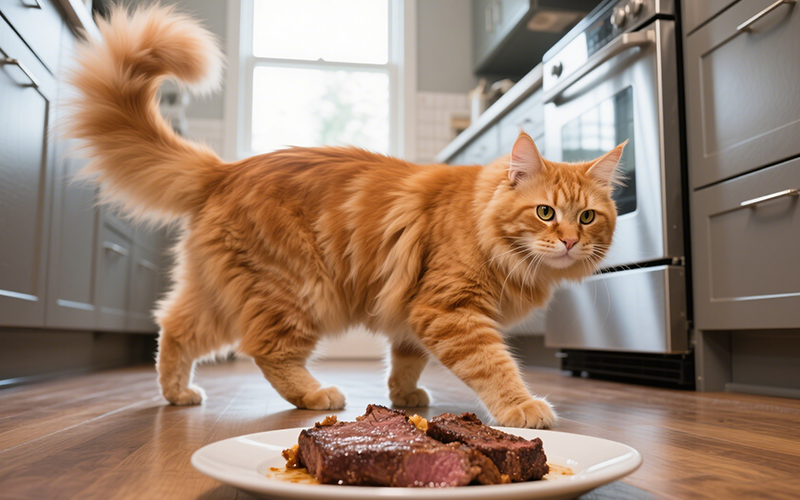
Can Cats Eat Roast Beef? A Vet-Reviewed Guide to Safe Sharing
- 30 Apr 2025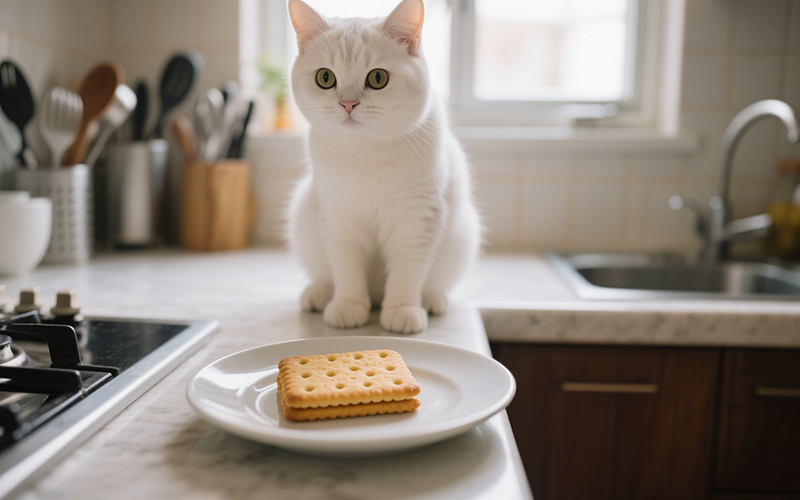
Can Cats Eat Ritz Crackers? Vet-Reviewed Risks & Why You Should Say No
- 30 Apr 2025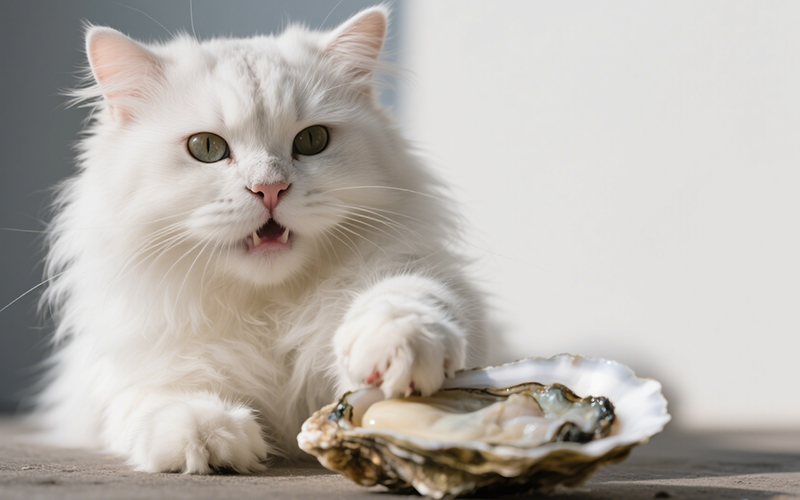
Shucking the Myths: Can Cats Eat Raw Oysters? A Deep Dive into Feline Safety
- 29 Apr 2025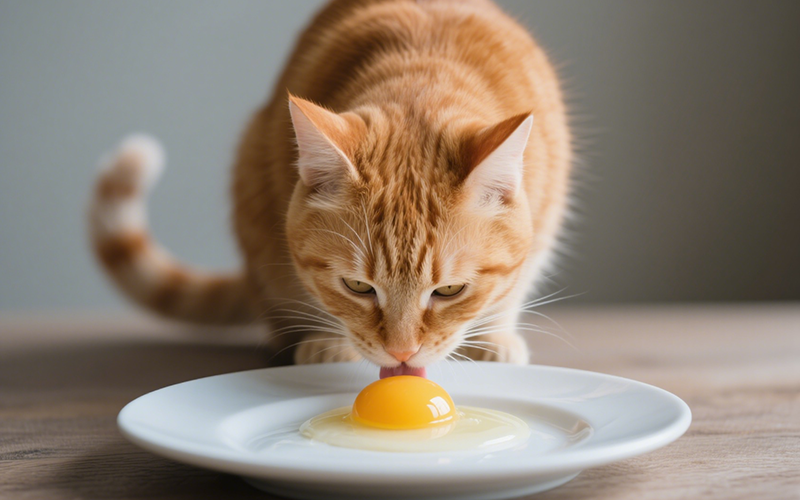
Raw Deal? Can Cats Eat Raw Egg Yolk Safely? A Vet-Reviewed Deep Dive
- 29 Apr 2025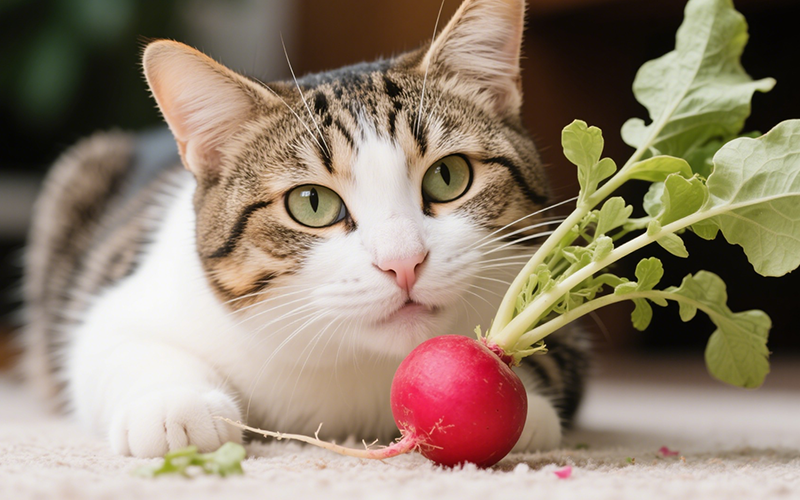
Radish Reality: Can Cats Safely Nibble This Peppery Root? A Vet-Reviewed Guide
- 28 Apr 2025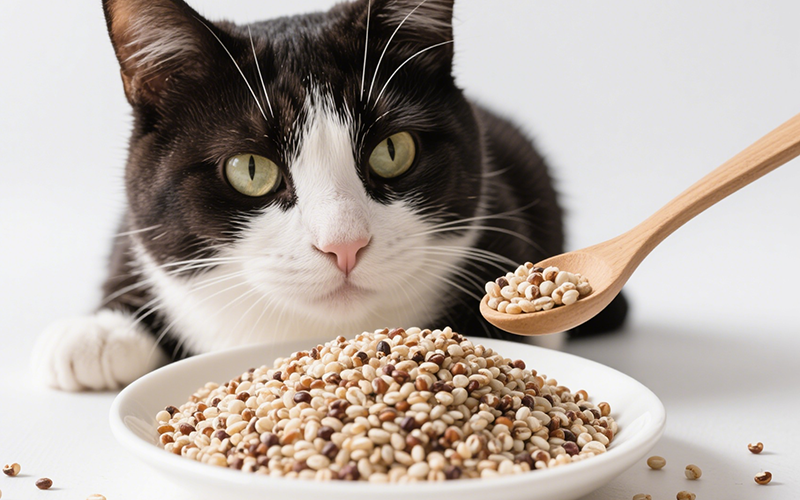
Quinoa for Kitties? Unraveling the Safety of This Trendy Grain for Cats
- 26 Apr 2025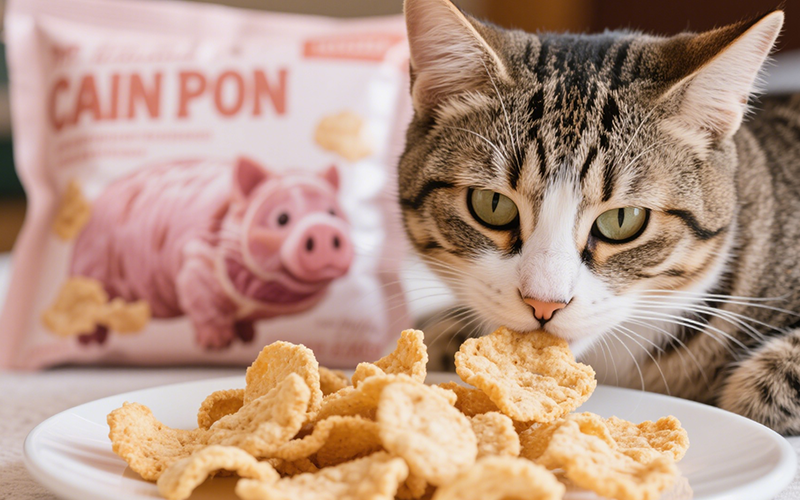
Crunch Time Danger: Can Cats Eat Pork Rinds? A Vet's Perspective on This Salty Snack
- 26 Apr 2025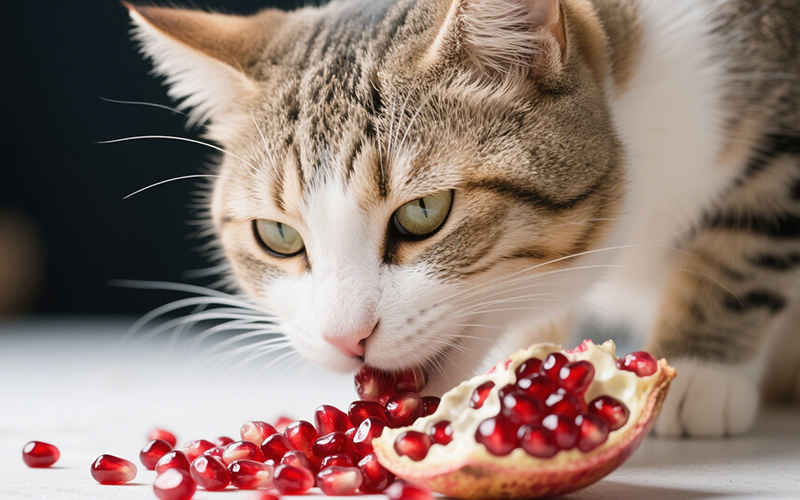
Pomegranate Peril: Can Cats Eat the Seeds Safely? A Vet-Reviewed Guide
- 25 Apr 2025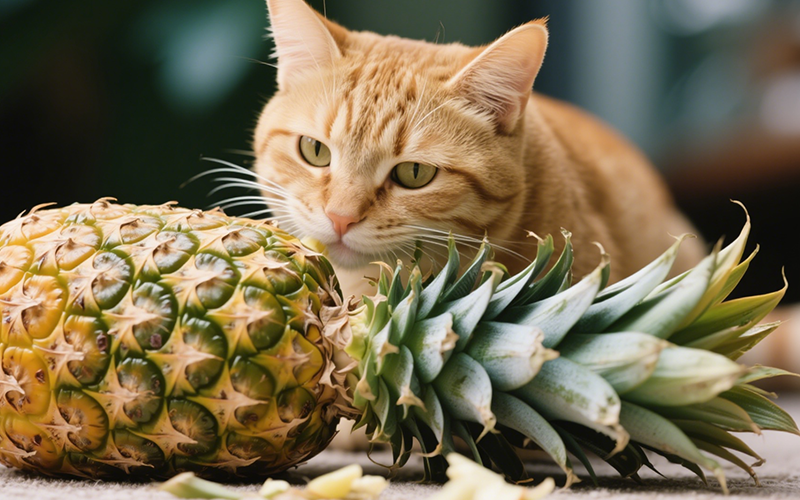
Prickly Problem: Can Cats Eat Pineapple Leaves Safely? A Vet-Reviewed Risk Analysis
- 25 Apr 2025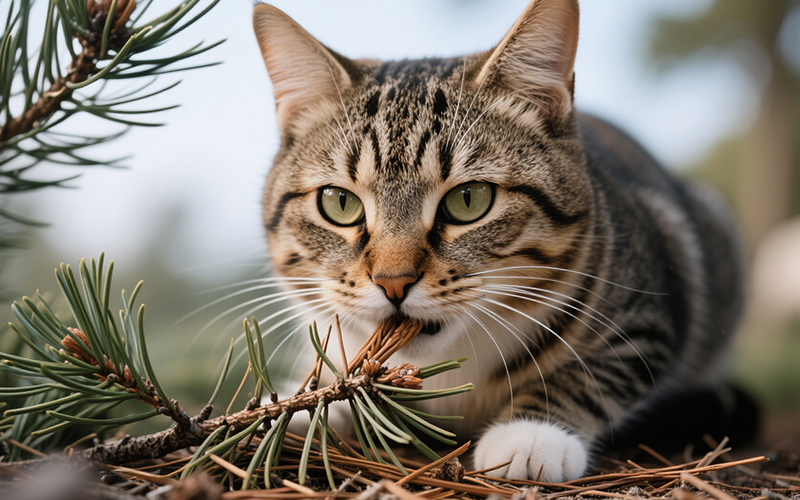
The Prickly Truth: Can Cats Eat Pine Needles Safely? A Guide for Concerned Owners
- 24 Apr 2025
